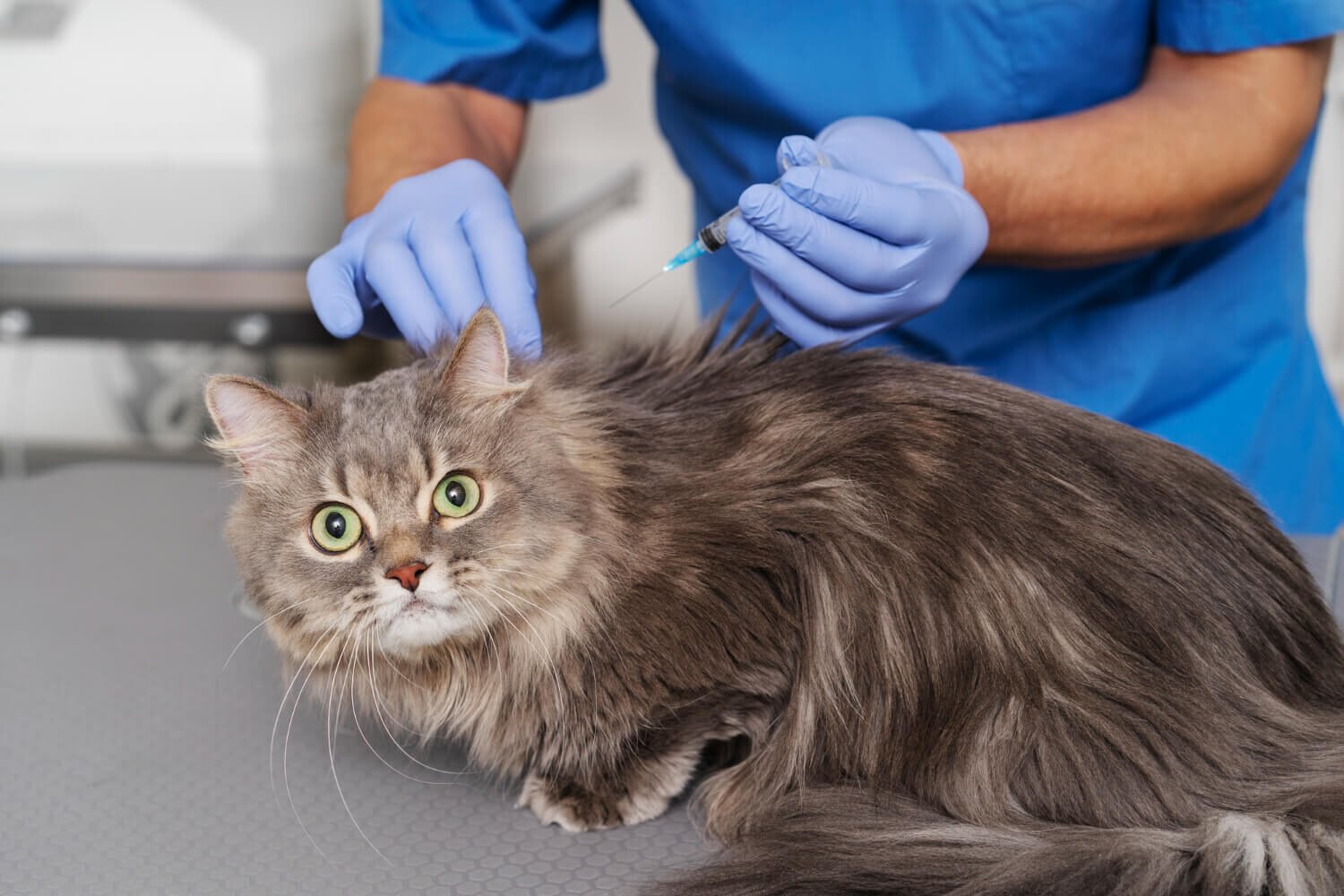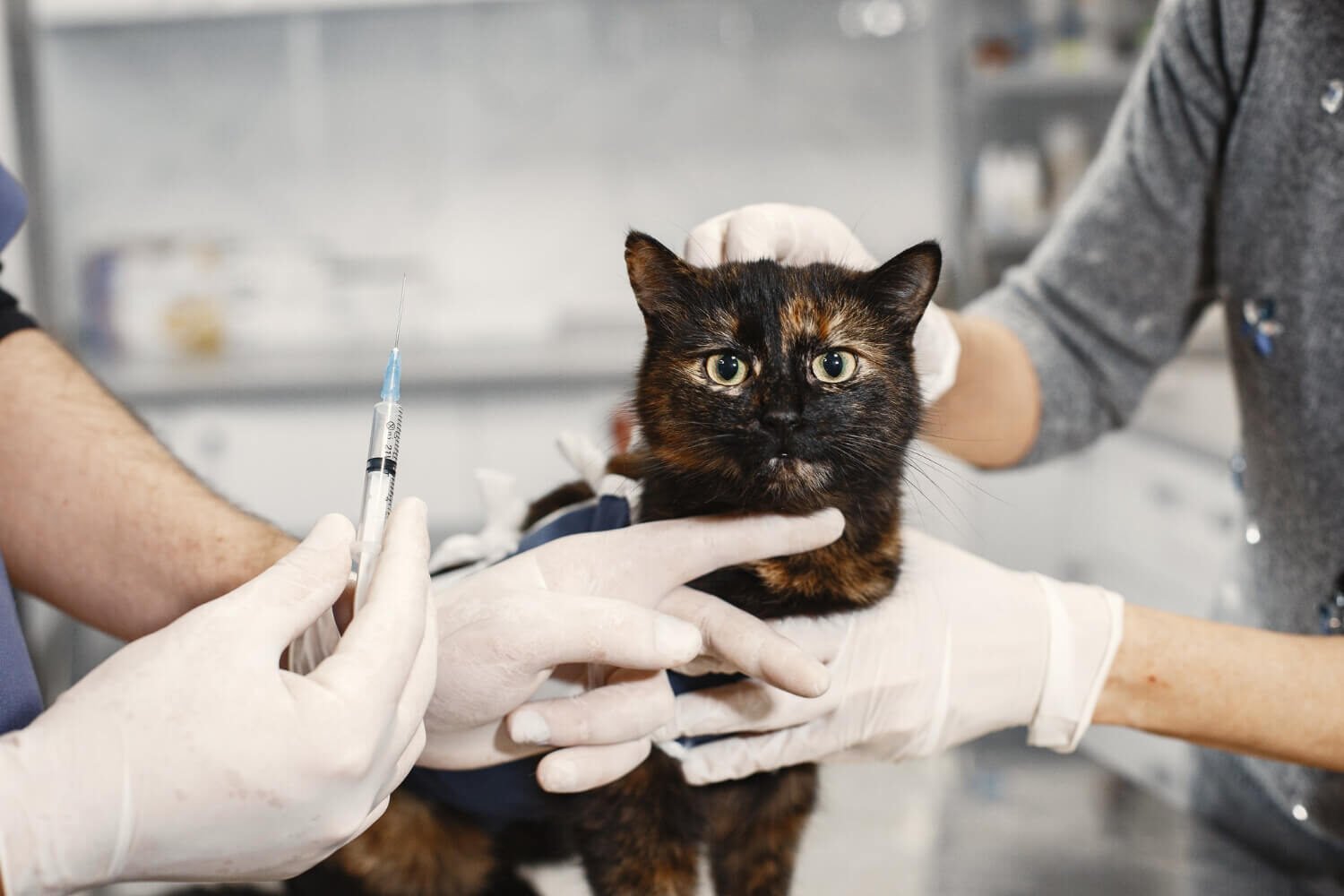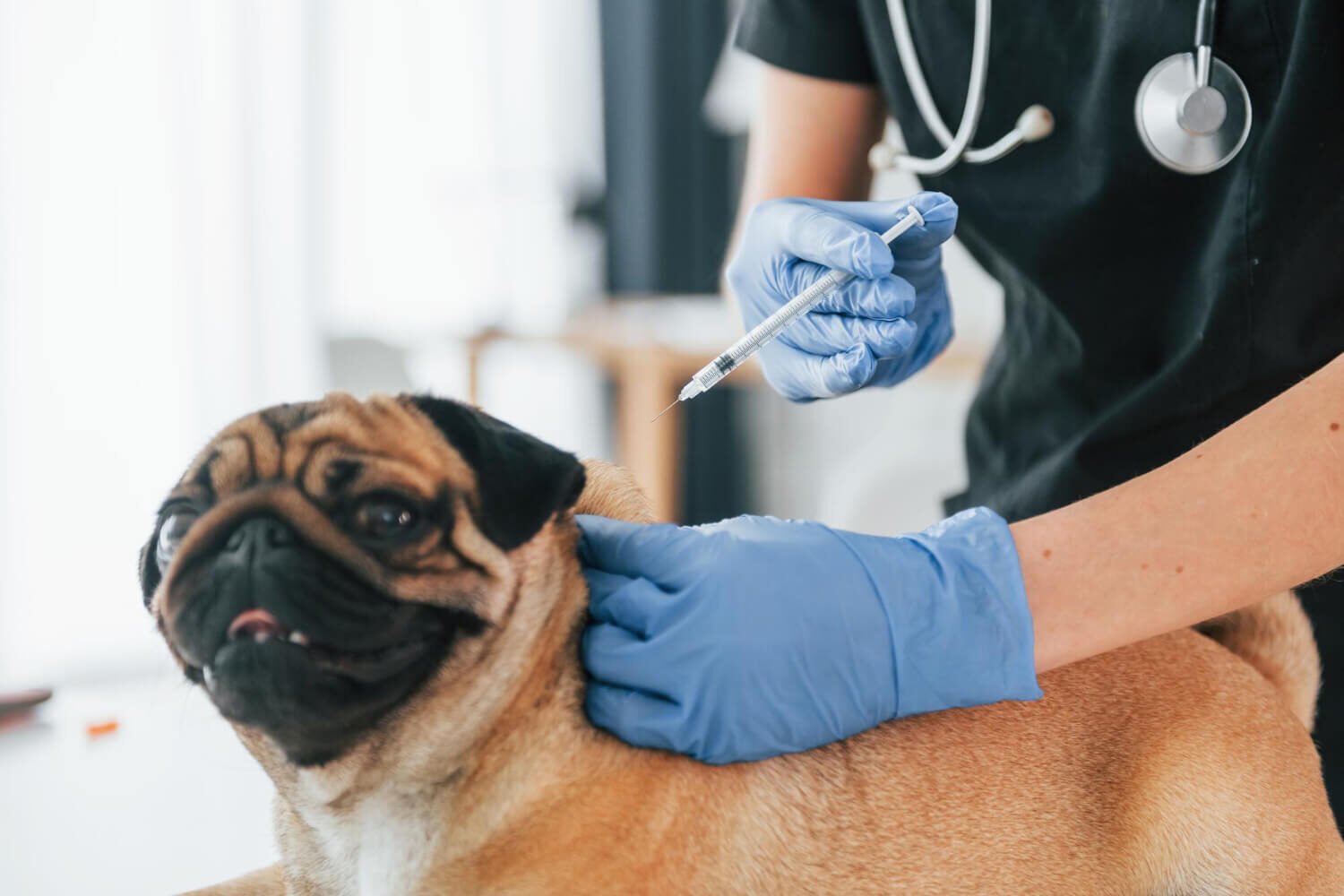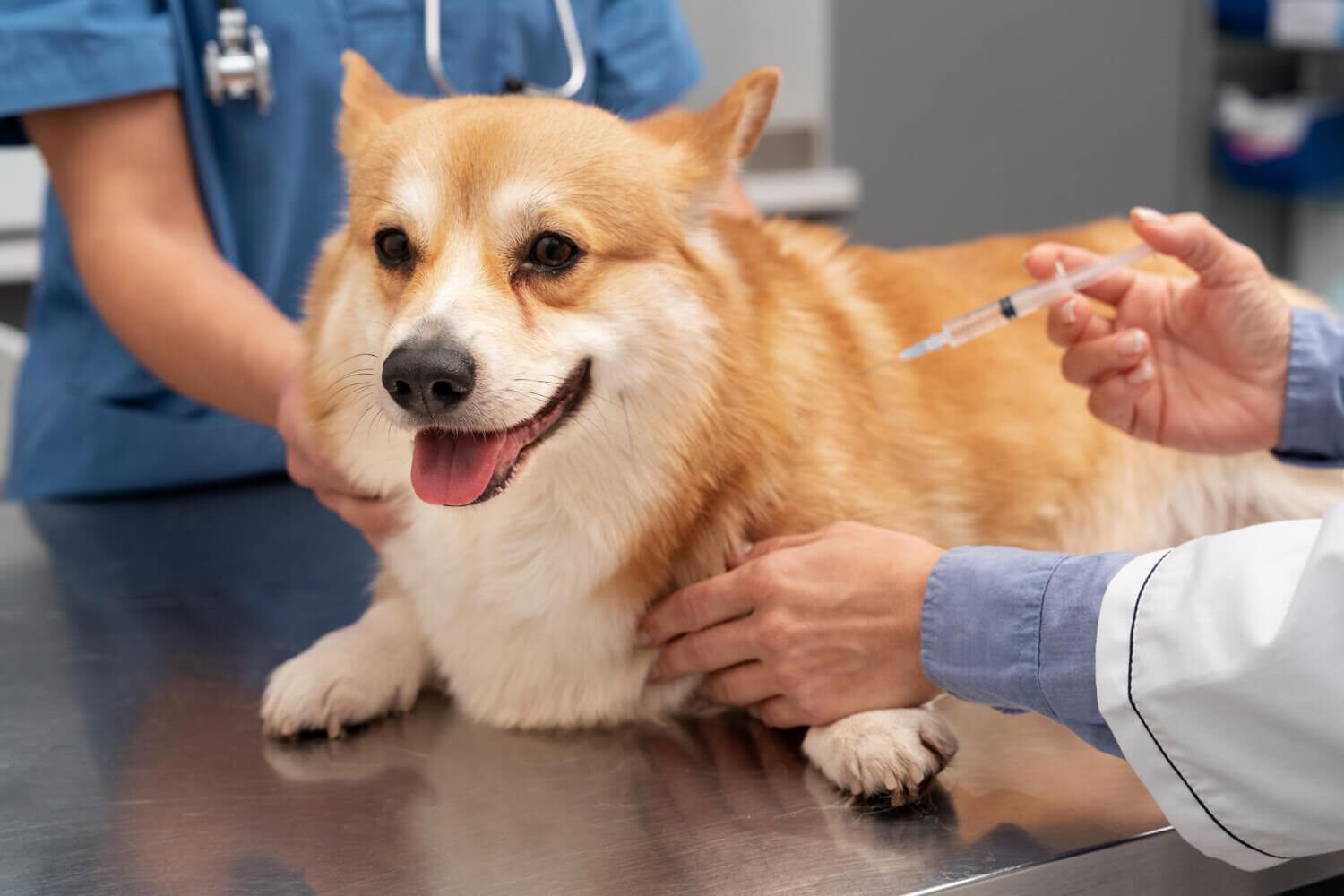Does Pet Health Insurance Cover Vaccinations? A Complete Guide
This is something that all pet parents would wish to see their furry friends live long, healthy, and happy lives. Whether it is normal check-ups at the vet or the necessary vaccinations, each time we do something, it leads to their health. However, with the increasing veterinary bills, most owners are asking themselves, how can they afford these bills without having to give in to the care of their pets?
That is where pet health insurance comes in. Similar to human health insurance, it assists in paying medical bills on your pets hence treatments and preventive care are affordable. However, there is one thing that seems to be on repeat- Does pet health insurance cover vaccinations as well?
In this ultimate guide, we shall be breaking down the pet insurance mechanism, what type of cover can be taken, why vaccinations are so essential, and whether your cover will cover them or not. At the end of it, you will be well-informed about what to expect and how to select the right plan to save your favorite pet.
What is Pet Health Insurance?
Pet health insurance is a financial safety net that would assist pet owners handle the animal veterinary care expenses which are usually unexpected. You pay a monthly or annual premium instead of covering the whole bill with your own money but in exchange, the insurance company reimburse you of any medical cost that is provided to be eligible. This may be emergency surgeries, routine check-ups among others depending on the plan you select.
Consider it as your personal health insurance in that it does not bring the costs down to zero but makes them much more affordable. And you do not need to be concerned about deferring treatment on account of budget. Rather, you will be able to concentrate on ensuring that your pet gets all the attention it is supposed to have without worrying about the huge bills looming over your head.
Types of Coverage available
Not every plan is created equal as far as pet health insurance is concerned. Various providers have varying amounts of coverage and it is always vital that you are aware of the kind of cover you are getting into. Other plans take into consideration wellness such as vaccinations and regular check-ups, but others are based on the cases of emergencies.
The following are some of the primary forms of coverage:
- Accident-Only Coverage – This includes the cost of medical care provided to your pet when it becomes injured in an accident like fractures, cuts, or ingesting dangerous items.
- Accident and Illness Coverage – It covers accidents and treatment of illnesses such as infections, allergies or chronic diseases.
- Comprehensive Coverage – This is a broader plan which includes accidents, illnesses, diagnostic tests, surgery and even prescription drugs.
- Wellness or Preventive Care Add-Ons – Add-On cover of routine health check-ups, yearly dental cleaning, flea/ticks, and annual health check-ups.
Importance of Pet Vaccinations
One of the easiest yet the most effective methods of keeping your pets safe against severe illnesses is vaccinations. Similar to humans, they aid in the development of immunity to harmful viruses and bacteria thus preventing diseases that would otherwise be fatal. Pets without their vaccinations are exposed to spreading of contagious diseases that can spread so fast even in communities, boarding houses or even during their normal walks at the parks.
Vaccination helps to maintain the safety of your pet, as well as, to promote the health of the population at large since it decreases the likelihood of an outbreak of animals and humans. Some of the vaccines such as rabies are in fact compulsory in a large number of locations, so these are an aspect of proper pet ownership that must not be compromised.
The following are the main reasons as to why the vaccination of pets is so critical:
Preventive Diseases – Prevents common and fatal diseases in pets like rabies, distemper and parvovirus.
Long-Term Health Savings – It is much more economical to prevent diseases rather than to cure them in the future.
Public Safety – Limits the risk of Zoonotic diseases (those that may be transferred between animals and humans).
Legal Requirement – It is mandatory in certain areas to have some vaccinations, especially rabies.
Peace of Mind – Make certain that your pet can play well with other pets and humans.
Does Pet Health Insurance Cover Vaccinations?
It is among the most usual inquiries that the owners of pets share when they wonder about whether they should insure their pets. The fact is, not all the regular pet health insurance plans are automatic with regards to the vaccination. These base plans normally are meant to take care of accidents, emergencies and illnesses- not preventive or routine care.
Nonetheless, most providers currently have wellness plans or add-ons explicitly covering the cost of vaccination. By choosing these, you are able to ensure that your pet receives the necessary vaccinations as a benefit to its general health. In this case, not only will you be secured by cases of emergencies but you will also be investing in preventative care that can save you larger medical bills in the future.
Therefore, although this may depend on your provider, plan type, etc, the general rule is: vaccinations are not typically core insurance, but may be included in optional additions or wellness or wellness packages.
Types of Insurance Plans and Vaccination Coverage
Vaccinations are not managed the same by all insurance plans. Others only cover emergencies only whereas others would allow you to include preventive care benefits. The knowledge of the difference will allow you to find the right plan that suits the needs of your pet and your budget.
These are the typical types of the plan and their approach to the coverage of the vaccination:
- Standard Accident-Only Plans– do not include vaccinations; can only be useful when a person is suddenly injured.
- Accident & Illness Plans– Generally omit vaccinations unless a wellness addition is added.
- Comprehensive Plans with Wellness Riders– This includes accidents, illnesses and can also encompass preventive treatment such as making vaccinations when you add a wellness rider.
- Dedicated Wellness or Preventive Plans – Particularly created to include regular health services like vaccinations, flea/ticks, annual examinations, and deworming.
- Individualized Bundled Plans -There are also providers who give you the chance to create your own package in which you can include vaccinations depending on your choice.
Common Vaccinations for Pets That May Be Covered
Immunizations form the basis of preventive healthcare in pets and most insurance companies that provide wellness or preventive care supplements do cover such vaccinations. Specifically, the covered vaccines can depend on the provider, although most plans concentrate on the necessary ones that guard against the most widespread and the most dangerous illnesses.
The following is a list of some common vaccinations that come with wellness insurance:
Dogs Vaccinations:
- Rabies – It is a legal requirement in most locations; it serves as protection to pets and to people.
- Distemper – Prevents a viral disease, which is highly contagious and normally fatal.
- Parvovirus – Covers against a terribly infectious and fatal intestinal infection.
- Adenovirus (Hepatitis) – Prevents infectious canine hepatitis in dogs.
- Parainfluenza – Helps prevent respiratory infections.
- Bordetella (Kennel Cough) – Recommended in social dogs or those that are taken to be boarded or daycare.
- Leptospirosis – Guards against a bacterial infection which might also afflict humans.
Related Blog: Dog Vaccinations: Essential Shots Every Dog Needs
Cats Vaccinations:
- Rabies – A legislative act in most regions; pets and community safety play a crucial role.
- Feline Panleukopenia (Distemper) – A viral disease which is in most cases fatal and serious.
- Feline Calicivirus – Prevents respiratory infections.
- Feline Herpesvirus (Rhinotracheitis) – A common respiratory disease of cats.
- Feline Leukemia Virus (FeLV) – Recommended in situations where a cat is in danger because of kitten or outdoor life.
- Chlamydia – Help prevent infections of the eye and breathing.
Related Blog: Cat Vaccinations: Protecting Your Feline Friend from Diseases
Factors That Influence Coverage of Vaccinations
Pet health insurance does not have a standard vaccination coverage. It is based on a combination of variables which are associated with the insurance company, the kind of plan you take and in some cases even with the profile of your pet. The knowledge of these factors will allow you not to get into a ruin when you file a claim.
The following are the primary influences of coverage:
1. Type of Plan – Standard accident/illness plans do not tend to cover vaccinations, whereas wellness add-ons or preventive care plans tend to cover them.
2. Policies of the Insurance Providers -Every company has policies concerning what is covered and what must be paid in addition.
3. Age of Pet – Puppies and kitten pets usually have varying coverage plans than adult pets and senior pets.
4. Breed and Risk Profile – There are certain breeds that are considered to be high-risk, and this may have limitations or increased premiums.
5. Geographic Location – Some areas can have a compulsory vaccination (such as rabies) which will affect insurers in terms of providing cover.
6. Optional Add-Ons – Add-ons will also give you the option to add preventive or wellness to your plan to cover the cost of vaccinations.
7. Annual Limits & Caps – There can be annual limits and caps even where the vaccinations are covered (the insurer may limit the amount he/she pays annually).
Benefits of Choosing a Plan That Covers Vaccination
What makes adopting a pet insurance plan, with or without vaccination coverage, more than convenient is the potential to save a lot of money and have peace of mind in the long term. As the primary precautionary maintenance care is the initial line of defense in fighting expensive diseases, the coverage of these expenses makes owning a pet easier and less expensive.
The main advantages of such plans are the following:
- Cost Savings – Vaccinations may be added up every year; insurance allows covering these repeating costs.
- Improved Preventive Care – Promotes early vaccines and the threat of severe illnesses is decreased.
- Peace of Mind – You do not need to worry about the inability to make vaccinations owing to financial limitations.
- Holistic Coverage – This is a combination of preventive care and emergency care.
- Better Pet Health – Frequent vaccination results in long and healthy lives of your pets.
- Budget-Friendly Planning – Disperses the expenses into premiums which are quite manageable instead of lump-sum vet bills.
FAQs About Vaccinations and Pet Health Insurance
It may seem that pet parents have all the information they need, and yet, there are still several unanswered questions concerning the effect of such an action as vaccination coverage. The following are the most frequent questions, answered in a simple manner:
Q1. Are puppy and kitten vaccinations included in plans?
They are not included in most base-level insurance plans but when you buy a wellness or preventive care add-on, puppy and kitten vaccinations are usually covered. They are essential because young pets should receive a complete course of injections during the first year.
Q2. Can I buy vaccination coverage separately?
Yep, most providers will enable you to include a wellness package to your primary insurance policy. In this manner, you will be able to have cover on vaccinations, regular check-ups and other preventive measures without having to upgrade to a very costly comprehensive plan.
Q3. Do all insurance providers offer wellness add-ons?
Not all. Other companies only specialize in accident and illness plans. Before joining the providers, it is important to compare them and confirm whether they have the feature of wellness or preventative care.
Q4. Is vaccination coverage worth the extra premium?
And, when you are serious about maintaining the practice of yearly vaccinations, then yes, it tends to pay off. In the long run, the add-on would be offset by lowering your regular vet bills, not to mention that you save larger medical expenses by averting illnesses.
Q5. Does pet insurance cover rabies shots?
Basic plans do not commonly include rabies shots, although they are available in most wellness add-ons as they are legally mandated in most areas. It is always important to verify with your insurer to ensure that you do not incur any surprises.
Conclusion
Vaccination is among the best things your pet would enjoy in its health and prevent life threatening diseases and give your pet a happier and healthier life. Even though typical pet health plans do not always include vaccination, many companies will provide you with an option to add a wellness or preventive care plan that would cover these necessary yet standard types of expenses.
The trick is just in choosing your policy that fits your budget and needs of your pet. Having known what is in the different plans, their functionality and the extras, you will be in a position to make a sound decision and still ensure that you have your pet secure without necessarily stretching your budget. Finally, a strategy that covers vaccinations is both a cost-efficient activity that offers a semblance of safety because nothing is greater than being certain that your beloved pet is safe.





